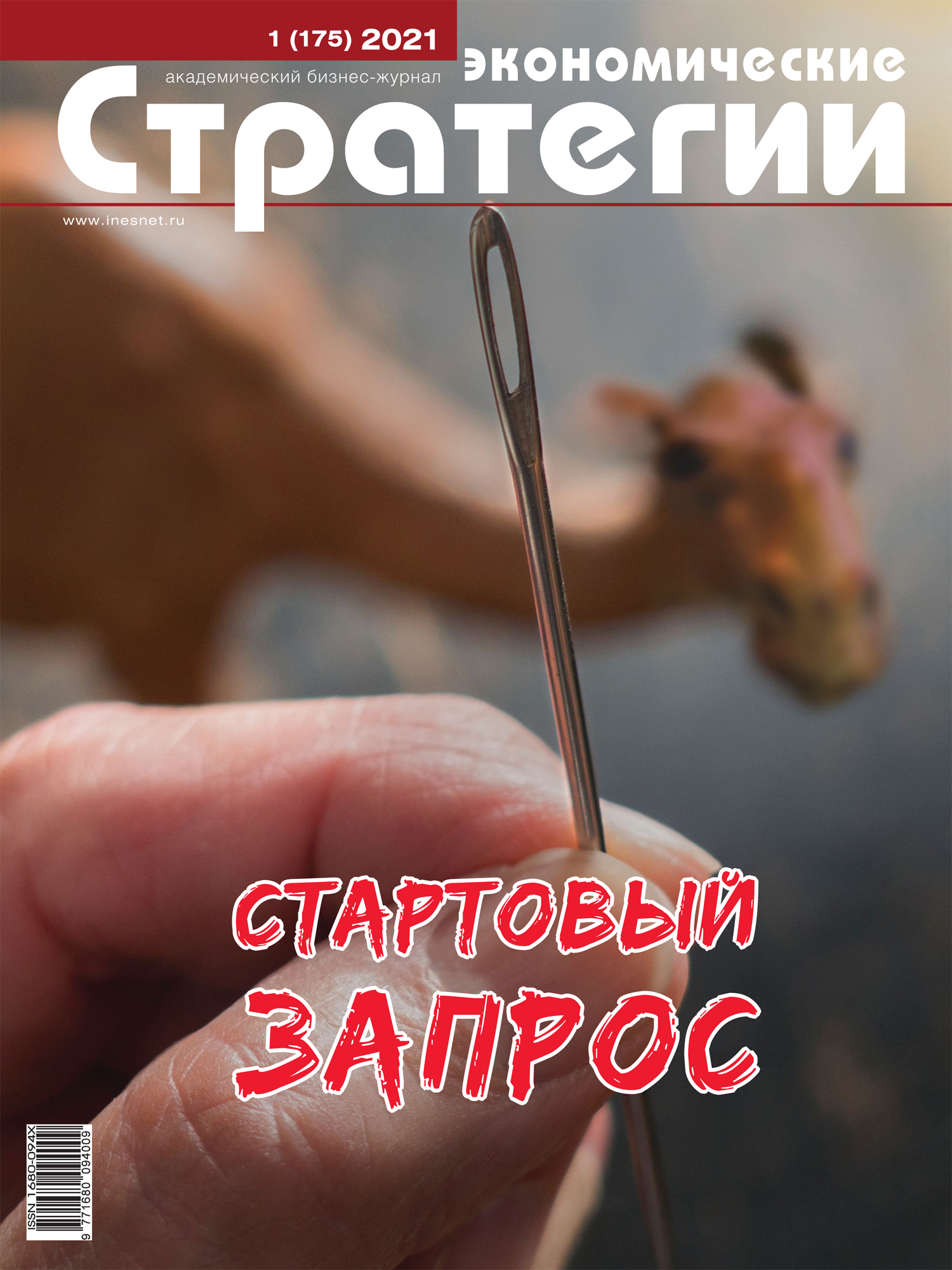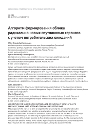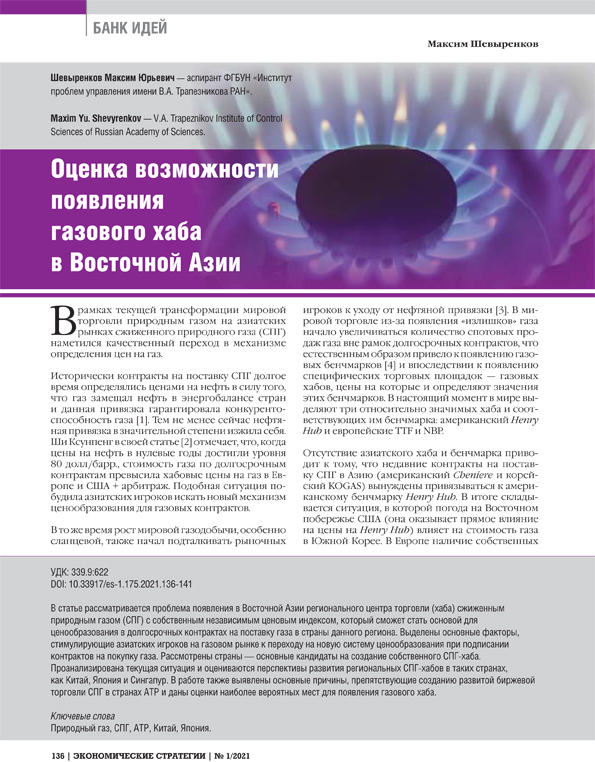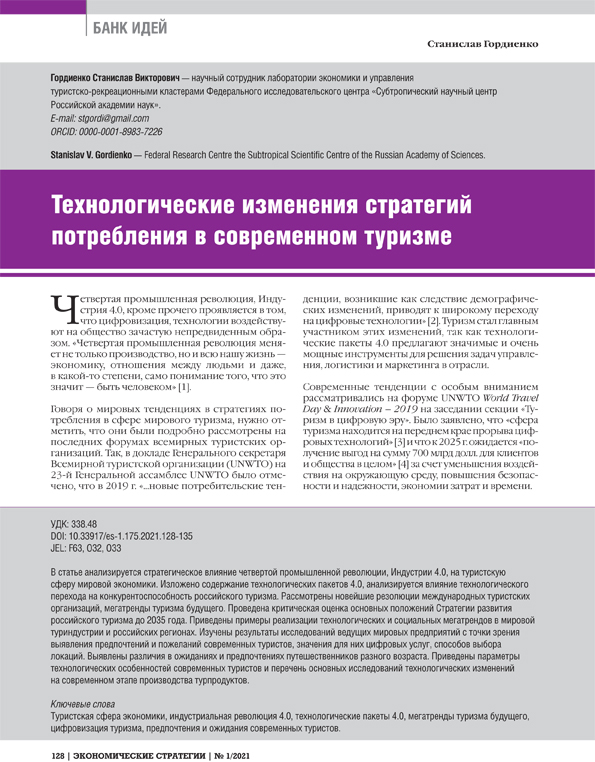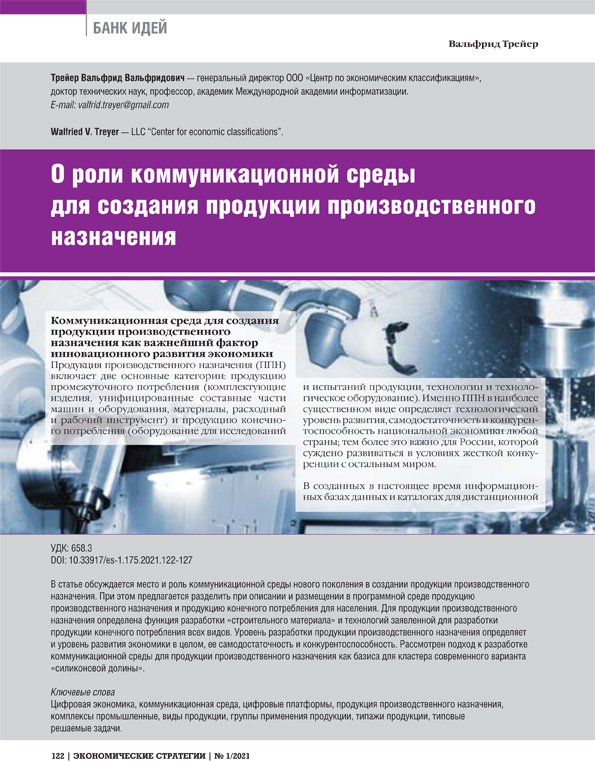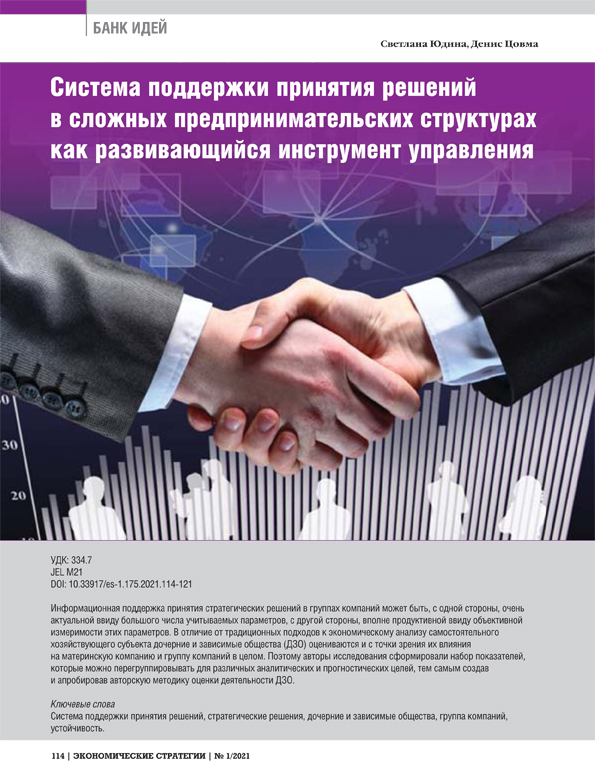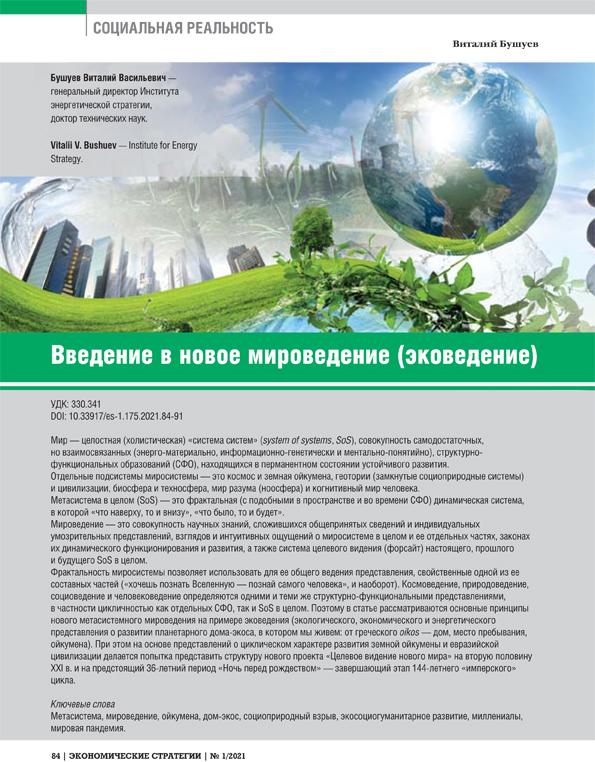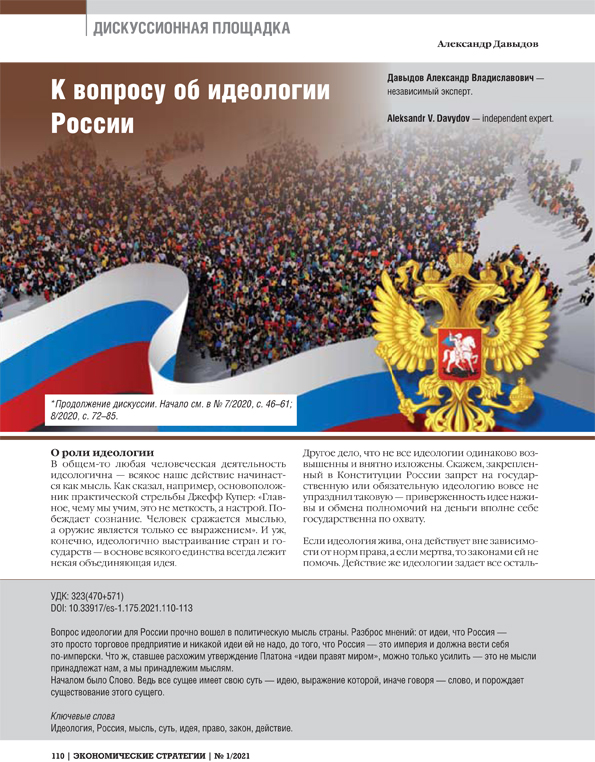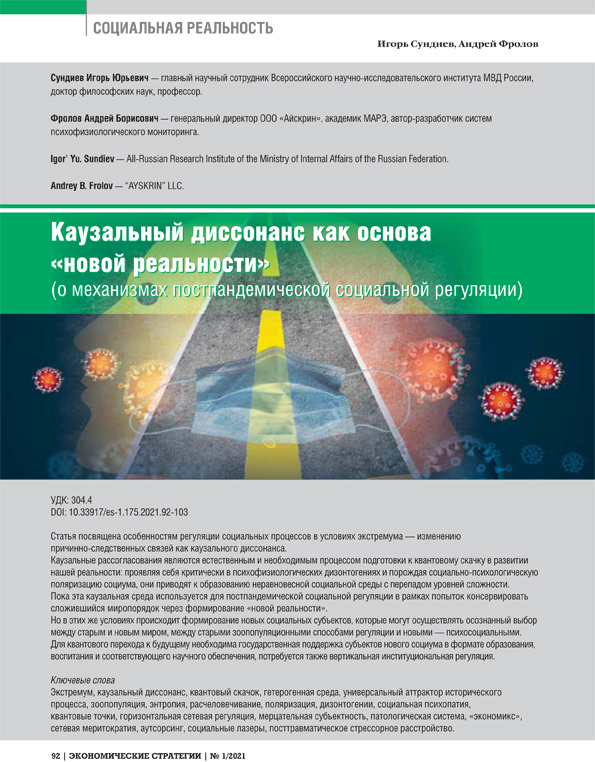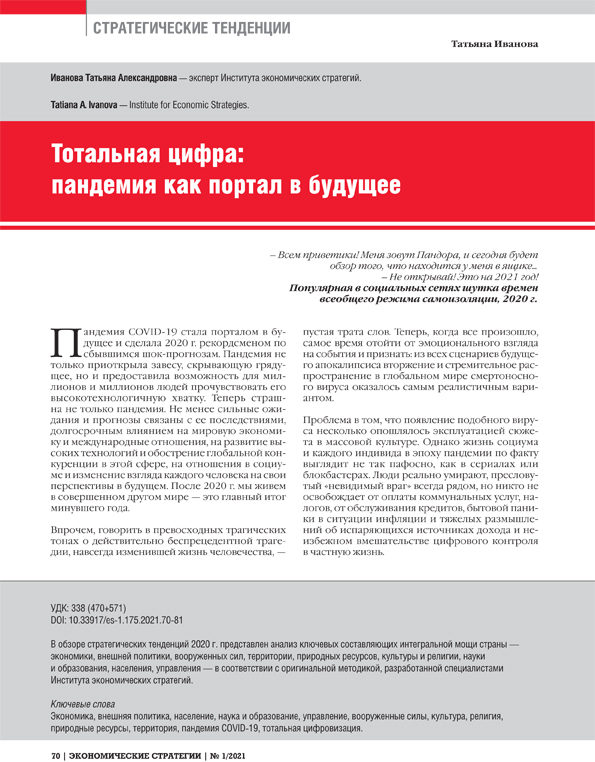DOI: 10.33917/es-1.175.2021.84-91
The world is an integral (holistic) “system of systems” (SoS), a set of self-sufficient, but interconnected (energy-materially, information-genetically and mental-conceptually), structural-functional formations (SFF), which are in a permanent state of stable development.
Separate subsystems of the world system are the space and terrestrial oecumene, geotories (closed socio-natural systems) and civilizations, biosphere and technosphere, the world of reason (noosphere) and the cognitive world of a man. Metasystem as a whole (SoS) — is fractal (with SFF similar in space and time) dynamic system, in which “what’s above, the same is below”, “what happened is what will happen.” Global studies is a complex of scientific knowledge, established generally accepted information and individual speculative assumptions, views and intuitive sensations about the world system as a whole and its individual parts, laws of their dynamic functioning and development, as well as a targeted vision system (foresight) of the present, the past and the future of SoS on the whole.
Fractality of the world system allows us to use, for its general management, conseptions inherent in one of its constituent parts (“want to know the Universe — cognize a human himself”, and vice versa). Cosmology, natural history, social science and human studies are determined by the same structural and functional concepts, in particular, the cyclical nature of both separate SFF and SoS as a whole. Therefore, the present article examines basic principles of a new metasystem-based world studies on the example of eco-studies (ecological, economic and energy conceptions on development of the planetary house-ecos in which we live: from the Greek oikos – house, place of residence, oikumen). At the same time, based on ideas about cyclical nature of the development of terrestrial oecumene and Eurasian civilization, an attempt is made to present the structure of a new project “Targeted vision of the new world” for the second half of the 21st century and for the coming 36-year period, “Christmas Eve” is the culmination of the 144-year “imperial” cycle


